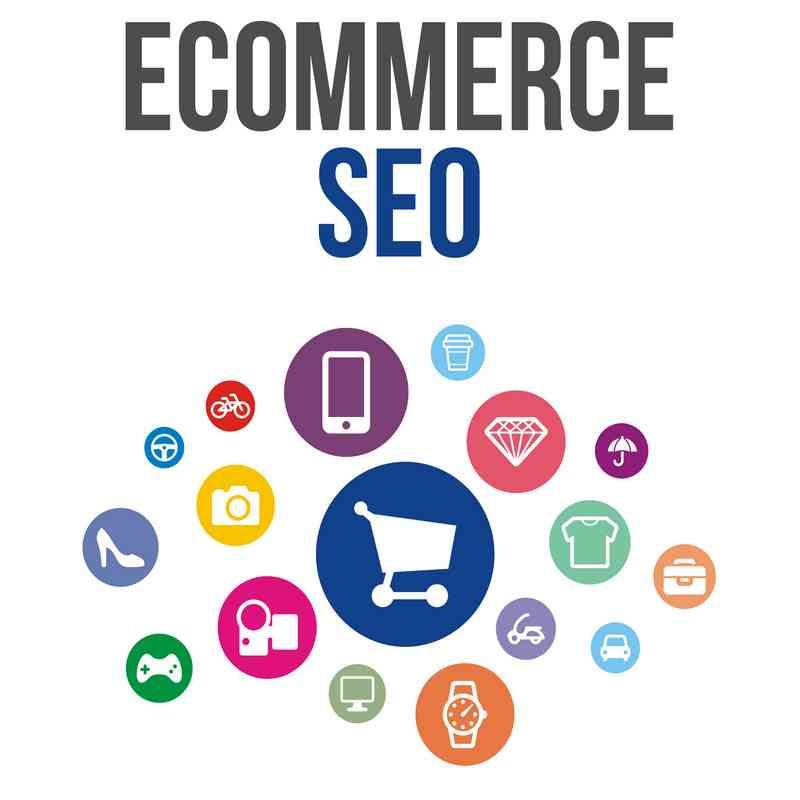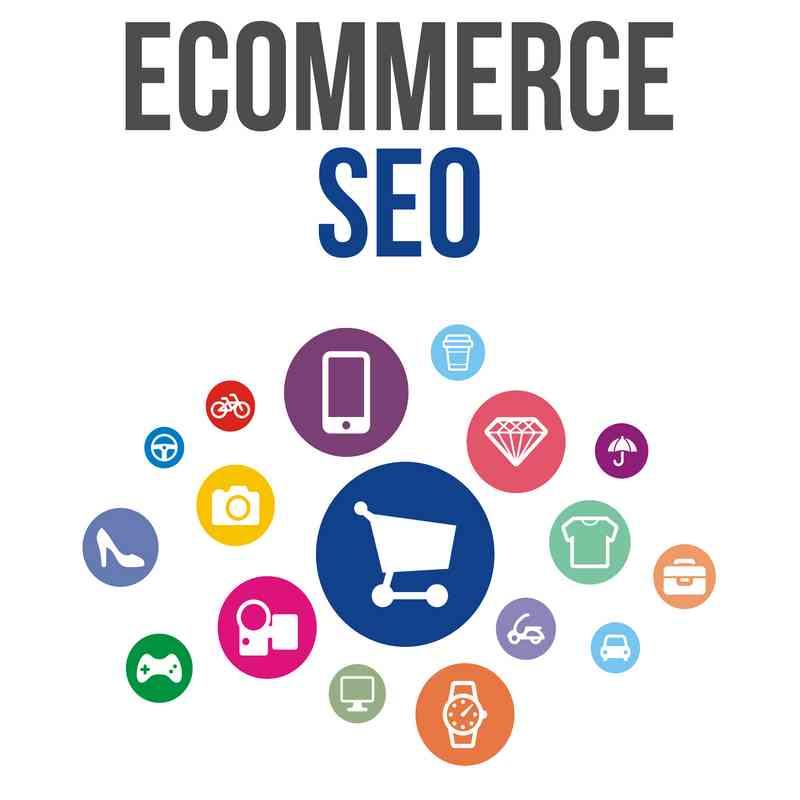Advantages and applications of Augmented Reality in Digital Marketing
Augmented reality is a new trend in the digital marketing space. More companies are shifting towards adopting AR as their basic marketing and...


Getting more traffic is the priority for any entrepreneur running an online business; so, the possibility of acing eCommerce SEO presumably touches their attention a lot.
Search Engine Optimization (SEO) can genuinely assist you with growing your online business. SEO enables you to get higher organic web traffic, better conversion rates, and a top ranking on web index. Thus, when you sell your items on the web, and you need your online business to be effective then you have to concentrate on your SEO.
When your site comes up to the primary page of Google' SERPs then inevitably you will get more traffic. What's more, increased traffic implies more customers and more deals. So, here's some SEO checklist crucial for your eCommerce store:
To begin, work out a list of each keyword that you consider your targeted audience may search to discover your product. Try not to concentrate a lot on consummating your list at this level – you will be filtering it later.
Conceptualize your keywords by considering what appeals to individuals to your business. Your list of keywords ought to define your product and feature what makes your business special and valuable.
In case you're feeling stuck, put forth these inquiries and abridge your answers into keywords:
Have a go at utilizing the longer three to four-word terms that are precise to your product. The longer keywords get less traffic because their range is progressively restricted. In any case, they will, in general, have a higher conversion rate since they're adapted towards clients who know what they need to purchase precisely.
Further, type the keywords from your conceptualizing list into the search engine – Google, see what the web search tool offers as you're typing, and think about updating your keywords to coordinate with these recommendations.
Google recommends the most famous phrases, so it's an extraordinary tool for refining your keywords to attract more potential leads online.
But be watchful of utilizing general words that appear as they are regularly searched. Many e-commerce store owners will attempt to rank for those high search volume keywords or phrases, so you'll have a little opportunity of ranking high on the search engine page due to the overwhelming competition.
Title tags are a basic part of on-page SEO for online business. Title tags for the online store are the HTML codes that create clickable headlines or titles for organic search lists.
Title tags serve a couple of key roles with regards to SEO result. These are extraordinary for giving significance and expanding your organic click-through rate by interesting clients looking for items.
The closer that your title tag identifies with the keyword hunted, its almost probable clients are to click it.
Contingent upon what e-commerce platform you are using, you ought to effectively alter your title tag for category pages, products, and that's just the beginning.
Here are some prescribed procedures to remember while creating a title tag for your e-commerce site:
Your homepage content ought to enable visitors to get familiar with your business and the items you bring to the table reasonably and succinctly. Abstain from over-burdening visitors with an excessive amount of data. Consider highlighting a couple of best products on the landing page and your unique selling approach.
Jumbled homepages can frustrate the visitor on your site and search engines alike. Google will make efforts to recognize what you sell and who you are targeting with your items, so get explicit about what your eCommerce store offers.
The URL of your online store might be one of the main things a client sees on the SERP.
Not exclusively are longer URLs difficult to read, they additionally make it increasingly confusing for Google's crawlers to comprehend what your product or page is about.
Google doesn’t prefer copied content, and eCommerce stores are famous for having the copy – or practically duplicate – content, particularly on the product pages.
Online business can have a large number of pages of product descriptions, and utilizing manufacturers' specifications can spare a tremendous amount of time. Still ensure to include one of a kind commentary on each page, notwithstanding when utilizing regular descriptions as a base.
Website speed is a high ranking variable in Google's algorithm.
Head over to Google's PageSpeed Insights and gauge how much time your website is taking to load. Afterward, use the GTmetrix and add your eCommerce site's URL once more. These tools will assess different components on your page, and prescribe methods to lessen its loading speed.
Set aside some time to study through every proposal. Some are simple enough to finish a DIY fix. However, you may need to take the assistance of a tech SEO professional or site developer to help with the complicated parts.
Install a good analytics library so you can begin gathering data and acquiring insights directly. Seeing how customers connect with your site will empower you to make progressively crucial strategies for keyword use, site design improvements, content, and website structure.
Your landing page needs a convincing call to action. It might change after some time, for instance, when you need to market specific items or for a seasonal occasion like Winter Sale.
However, you have to ensure it's in every case effectively noticeable and that it addresses the demands and desires of your visitors.
Your fundamental objective is to acquire as much cash-flow as could be expected, and that cash is made through your shopping cart. Thus, your shopping cart ought to be visible and accessible consistently – don't make users search for it.
We would likewise prescribe including the number of items in the cart to your cart icon. It will help shoppers know they have added items to their cart.
Numerous clients will do a picture search when they're looking for visual items, for example, apparel, furniture, and art. It's much simpler to search for visual items with an interface. So, in case you're trading items that clients need to see, image search can be an essential source of bringing new clients and income for your online business.
Google right now changed its UI such that it’ll benefit eCommerce stores. The view image feature has been evacuated, so searchers who click on the picture will go to your page directly.
Utilize descriptive filenames as well as ALT tags that incorporate your target keywords.
Web search tools, for example, Google utilizes the quality, number, and relevancy of links to a particular page or site as a ranking component. You can consider links as citations that set up trust according to web crawlers.
As we would like to recommend, the ideal method to address "building links" is to concentrate on partnerships, or to figure out who (like distributors, different websites in your industry) you can give and share value.
In case you know a fashion blogger who consistently reviews the sort of apparel you sell, a basic presentation can be the beginning of a mutually valuable relationship.
A website based on a structure offers a great user experience. It encourages your site visitors and search engines in finding suitable data.
Alongside this, internal linking of related items and different pages of your eCommerce site serves to effortlessly index pages of your business webpage. Accurately structured sites help web crawlers to discover your site pages.
These days people would prefer not to open their huge laptop or computer to search the web. Rather they'll just take their smartphone out of the pocket and begin searching on it.
So, ensure your site is mobile friendly because in case it is not you'll presumably lose several mobile users.
Also, Google has decided to rank a site in the wake of checking its mobile version first. Thus, it's a smart choice to make your eCommerce site mobile friendly. In case it’s still not then request your developers to make it as such.
Blog posts on an eCommerce platform likewise give a chance to build a robust online business SEO plan while drawing in and informing your target audience. Build up a blog calendar for your site and publish posts that go about as buyers' guides and supportive content.
Also, remember to avoid plagiarized content. Google announces duplicating content from other sites isn’t a great idea to rank better on a search engine, in fact, it’ll blacklist your site.
Need help with your eCommerce website? Get in touch

Augmented reality is a new trend in the digital marketing space. More companies are shifting towards adopting AR as their basic marketing and...

Have you been wondering when Google will release a dashboard that you can use to communicate the success of campaigns with your customers? Look no...

Digital marketing is frequently changing, and because of this purpose, it is fundamental to commit mistakes. Staying aware of the recent trends can...